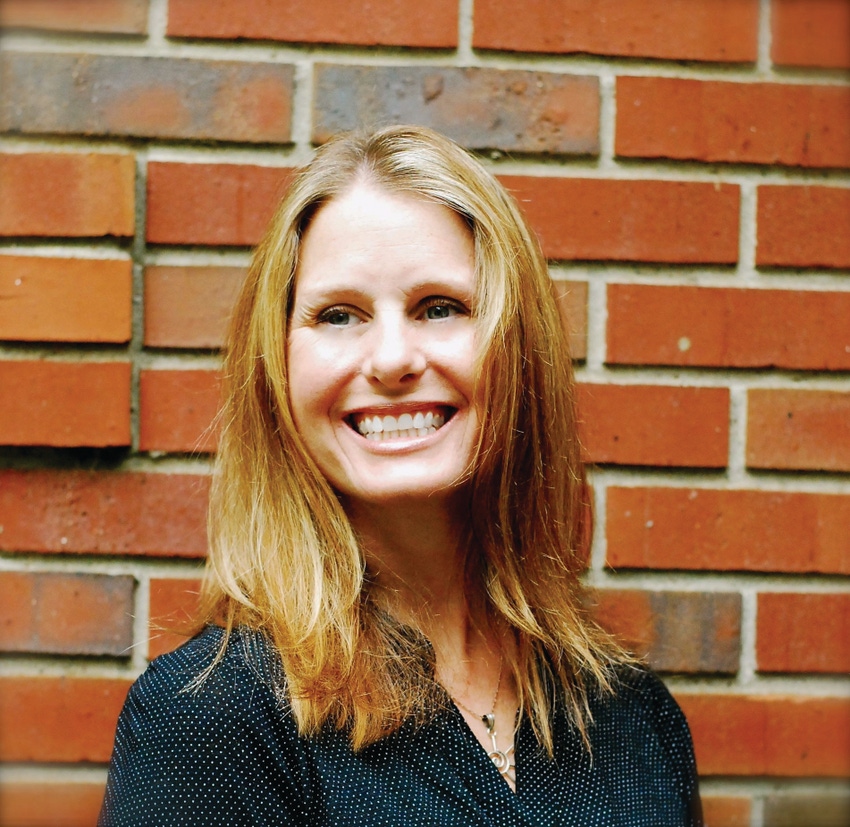Baltimore's National Aquarium Director of Seafood Sustainability talks about what's holding back the seafood industry and what's pushing ocean environmentalism forward.

Champion of oceans. Educator to fisherman, chefs, retailers and consumers. Hero for traceable seafood. Meet TJ Tate.
In her newest role as director of seafood sustainability for the Baltimore-based National Aquarium, Tate strives to expand more responsible seafood options by partnering with restaurants, local markets and thought leaders located in the Chesapeake Bay community.
Here, Tate highlights both the largest threats to the seafood industry and the bright points that can make meaningful difference to protect the ocean.
So what does a director of seafood sustainability do at the National Aquarium?
TJ Tate: My job is simple. I am here to connect the seafood dots from fisherman to waiter and chef to consumer. But the most important piece to this is my being the mother hen: I am overly protective of our dwindling natural resources, especially when it comes to fisheries. I fight for the rights of the fishermen and for the power of the retailer.
When every part of the seafood supply chain feels as if they are educated and have a voice in the future of our fisheries, we all win. Remember, there is no such thing as sustainable seafood without sustainable fisheries first.
What are the biggest threats to sourcing sustainable seafood today?
TT: Ignorance. Fishermen are generally the first line of defense for our fisheries, as they are true conservationists. That wisdom needs to trickle down through the entire supply chain to the consumer. When consumers become even slightly aware of where their seafood is from, we are moving in the right direction.
We all understand and support organic labels, farmers and the importance of the farm-to-table movement. The same should be for seafood. We all need to engage in the sustainable seafood discussion to truly drive change.
What makes you feel optimistic about sustainable seafood? What is turning the, ahem, tides?
TT: Eight years ago the words "sustainability"€ and "€œtraceability"€ were not even on the proverbial radar. Now, they are integrated into company policies regarding seafood and mission statements worldwide. Fishermen have become heroes instead of the bad guys, and harvesting seafood responsibly is now the norm rather than the exception. We can envision a future where environmentally friendly fisheries and aquaculture (fish farming) thrive along with the communities that depend on them.
The seafood industry can be a powerful force for improving the sustainability of seafood and ocean ecosystems. However, partnership is one of the critical elements to achieving long-term viability of seafood supply that is essential for business. We all depend on it as a global community.
How can retailers help educate their customers to make responsible purchases?
TT: They can support environmentally responsible seafood choices through purchasing decisions, and they can strive for transparency by letting their customers know where seafood is coming from. Make information regarding your seafood products publicly available—post it in your stores and provide it online.
Second, educate your customers, suppliers, employees and other key stakeholders about environmentally responsible seafood. The sustainable seafood industry relies heavily on consumers to speaking up, and demanding to know and learn about their seafood choices.
Who or what inspired you to become a champion for the ocean?
TT: It was the ocean herself! The amount of life the ocean supports is utterly amazing. It is so fragile yet powerful. So easily broken yet resilient. It'€™s a total oxymoron in every way. I love that. When you look out over a farm, you can see so many parts of that terrestrial ecosystem. When you look at any body of water, you essentially see nothing until you put your head under water. Then, everything comes to life!
People would cease to exist without our oceans, lakes, rivers and streams. We would plunge into economic decline, biological degradation and too many social issues to mention. I am so proud I have the opportunity to help prevent these declines.
About the Author(s)
You May Also Like




